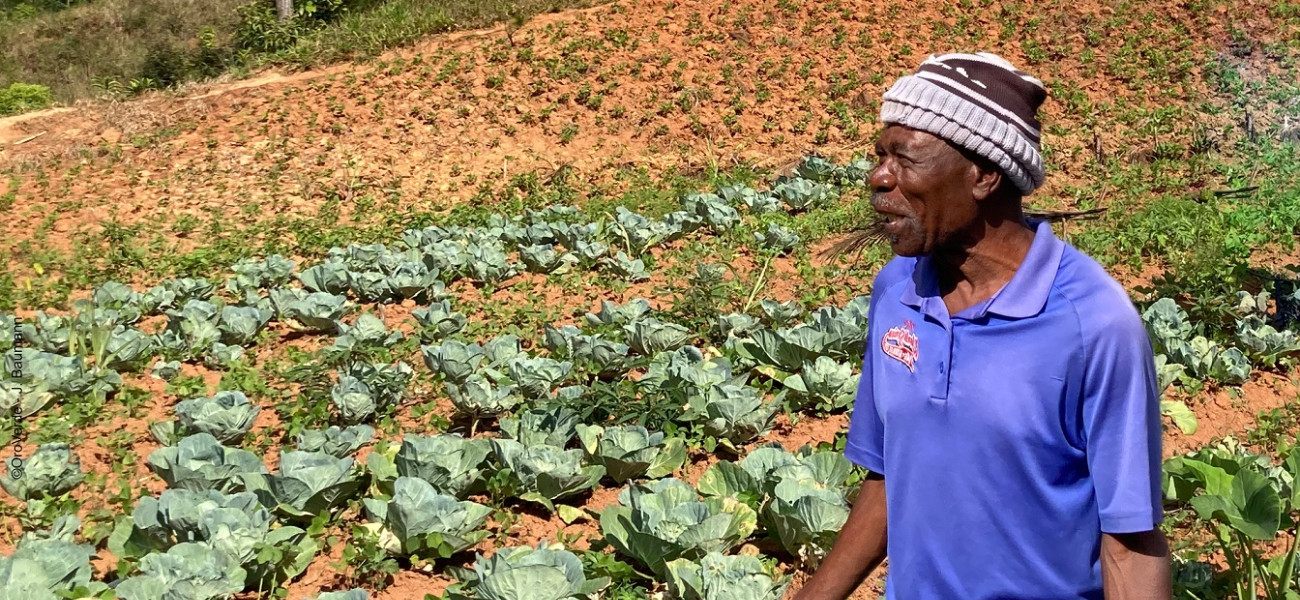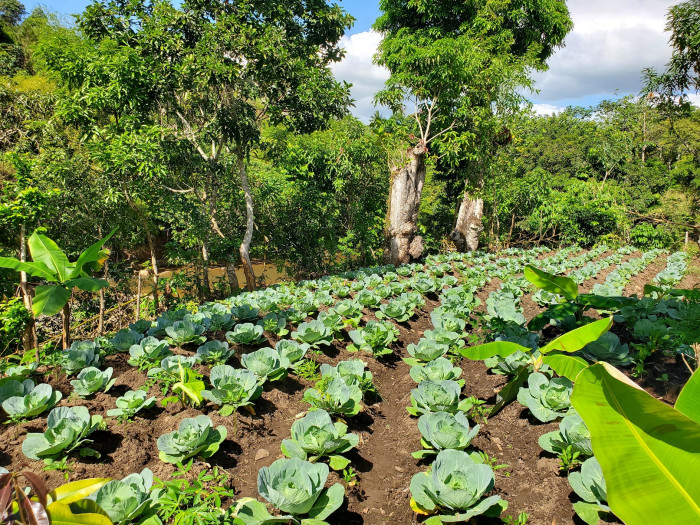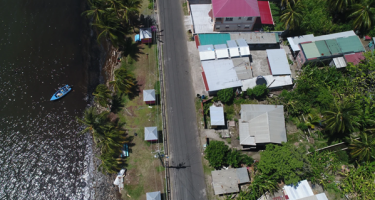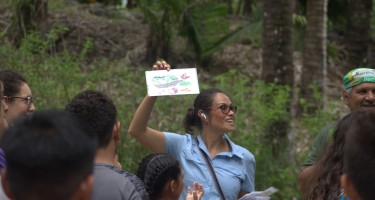Field visit: How Cabbage Builds Confidence
Dieudonné Silfrard's cabbage farm serves a double function: it ensures income and food in economically and politically unstable times and, at the same time, guarantees the care of the tree seedlings that form part of the agroforestry system that is currently being created on his land. Learn more about the support provided by the Resilient Caribbean Communities (CCR) project in Haiti and how cabbage is helping to restore local ecosystems in a way that makes people and nature more resilient to future extreme weather events.

Dieudonné Silfrard on his cabbage farm. © OroVerde – J.Baumann
In a few weeks, Dieudonné Silfrard's cabbage will be ready for harvest. He is looking forward to his family tasting it soon. In addition to eating it himself, he wants to sell the remaining cabbage at the local market. Cabbage is not only part of the Silfrard family's diet, but also a popular ingredient in Haitian cuisine. Selling it at the market provides the family with additional income - money that the family can put to good use in economically and politically unstable times.
Dieudonné Silfrard is one of the participants in the Resilient Caribbean Communities (CCR) project, whom Jonas Baumann from OroVerde, together with Hanna Maas from the Welthungerhilfe, met on their field visit in February. Cabbage cultivation has taken a key role in the project. It is there to build confidence. In the long term, the Haitian organization Concert-Action plans to create an agroforestry system on the family's farm. However, the trees needed for this need time to grow and bear fruit. The cabbage therefore performs a "double function": it ensures income and food in the short term and, at the same time, guarantees the care of the tree seedlings.
The agroforestry system on the Silfrard family's property is one of the planned solutions in a wide range of Concert-Action measures. The long-term goal is to restore local ecosystems in a way that makes people and nature more resilient to future extreme weather events. In technical terms, these solutions are known as ecosystem-based adaptation measures (EbA). However, they can only be successfully implemented if people's livelihoods are also taken into account in the current crisis situation.

A cabbage farm in the project region of Concert-Action in northern Haiti. © Welthungerhilfe – H. Maass
- Country: Haití
- Project:
- Contact:
Nina Gawol


